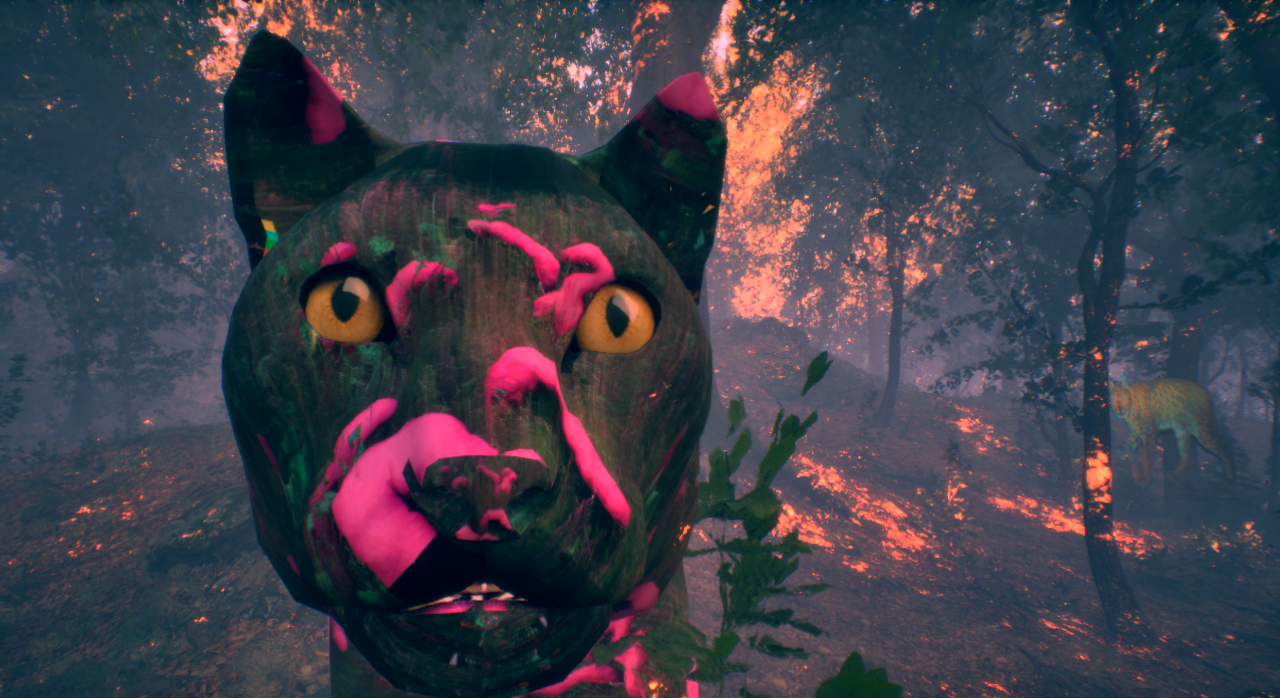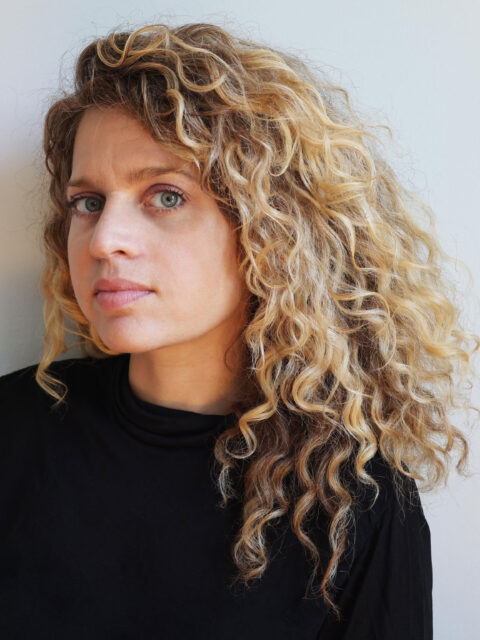Fully Automated Contact Zone
Miriam Simun / Elijah Stevens / United States
Two sites of rewilding - an attempt to rebalance ecosystems by introducing “wild foreign” organisms - collide inside a game-engine simulation: the Swiss Alps and my intestines. Created for dome environments and projection-mapped spaces, audiences are immersed inside ecosystems, zooming from the planetary, to the forest, to the molecular scale. Audio braids together scientist interviews, philosophical questions, and the artist’s intergenerational story.
Fully Automated Contact Zone (FACZ) simulates, inside of a game engine, a speculative proposal put forward by ecologists to implement ”wilderness creators” – self-evolving AI agents capable of sensing and acting upon the environment to implement ecological change. FACZ tells the story of two sites of rewilding – the Swiss alps, re-stabilized with “translocated” lynx captured in Eastern Europe, and my microbiome, made healthy with the ancient Mayan ferment Tepache de Tibicos, from bacteria-yeast symbionts originating in a desert cactus found along the Mexico-US border. Eventually the alps and my intestines collide. FACZ asks: Who belongs where? What are the ecological, technological and political systems enforcing belonging and control? What is the role of computational sensing and intelligence in planetary knowing and survival? How does ideology shape our knowing the wild? Is there a place for multispecies justice in our ways of knowing?

